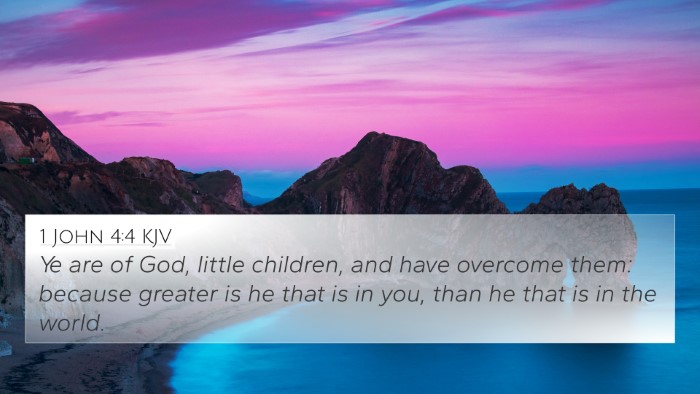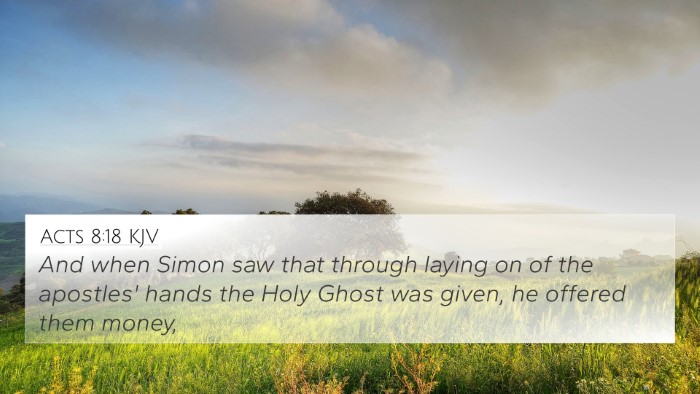Understanding Matthew 12:44
Bible Verse: Matthew 12:44 - "Then he says, ‘I will return to my house from which I came.’ And when he comes, he finds it empty, swept, and put in order."
Verse Meaning and Interpretation
This verse is part of a larger discourse where Jesus speaks about the nature of demonic possession and the consequences of its departure. Below, we summarize the insights from various public domain commentaries, bringing together their interpretations and explanations.
Matthew Henry’s Commentary
Matthew Henry emphasizes the importance of the moral condition of the heart after cleansing. He notes that once a demon departs, it is not enough for the heart or soul to merely be cleansed; it must also be filled with good and righteousness. If left empty, it becomes a target for the return of evil. Henry suggests that this passage warns against spiritual complacency and the necessity of filling one’s life with godly pursuits to prevent the return of evil influences.
Albert Barnes’ Notes
Albert Barnes reiterates the condition of the person after the evil spirit has left. He asserts that the temporary state of being ‘swept and put in order’ does not ensure permanence. Instead, Barnes highlights the danger of a vacant heart, suggesting that humans should actively seek to maintain a relationship with God. He interprets this verse as a call to action, emphasizing the need for continuous spiritual vigilance and engagement in faith to prevent relapse into prior sinfulness.
Adam Clarke’s Commentary
Adam Clarke provides insight into the metaphorical implications of ‘the house.’ Clarke interprets the house as representing the human soul or heart, asserting that while the initial removal of the demon is a moment of relief, it is only the beginning. He stresses that a pure heart must be filled with divine grace to guard against the susceptibility of returning evil manifestations. Clarke often connects this teaching to the broader context of the Gospels, linking the need for a life led by the Spirit.
Key Themes and Connections
The themes of this verse connect closely to the broader biblical narrative about spiritual cleansing, vigilance, and the importance of an active relationship with God. Below are some key thematic connections and specific Bible cross-references related to Matthew 12:44:
- Luke 11:24-26 - A parallel account where Jesus discusses the same theme of an unclean spirit returning.
- James 4:7-8 - Encourages believers to resist the devil and draw near to God, emphasizing action following spiritual cleansing.
- 1 Peter 5:8 - Reminds readers to be vigilant, as the enemy seeks to devour, correlating to the need for spiritual alertness.
- Galatians 5:16-25 - Discusses living by the Spirit versus the flesh, illustrating the battle within the believer's heart.
- Ephesians 6:12 - Highlights the spiritual warfare faced by believers, echoing the importance of being spiritually armed.
- Colossians 3:1-2 - Calls Christians to set their minds on things above, ensuring their hearts are filled with righteousness.
- John 15:4-5 - Stresses the necessity of remaining in Christ, a vital aspect of spiritual maintenance.
Tools for Cross-Referencing and Deeper Study
Engaging deeply with scripture requires various tools for cross-referencing which can enhance understanding. Here are some resources and ways to approach cross-referencing:
- Bible Concordance: A great tool for locating specific terms and their occurrences throughout the Bible.
- Cross-Reference Bible Study Guides: These guides can help draw connections between verses and themes.
- Online Bible Reference Resources: Many websites offer search functionalities to easily identify related verses.
- Bible Chain References: Following chain references can uncover interrelated scriptures.
- Comprehensive Bible Cross-Reference Materials: Utilizing printed or digital resources that provide in-depth cross-references for extensive studies.
Conclusion
The insights drawn from Matthew 12:44 encourage believers to actively fill their lives with godliness post-cleansing. Understanding this verse in the context of related scriptures enhances its application and highlights the ongoing battle against spiritual complacency. The interconnectedness of biblical texts enriches our comprehension and emphasizes the need for continual growth and vigilance in the faith.






















